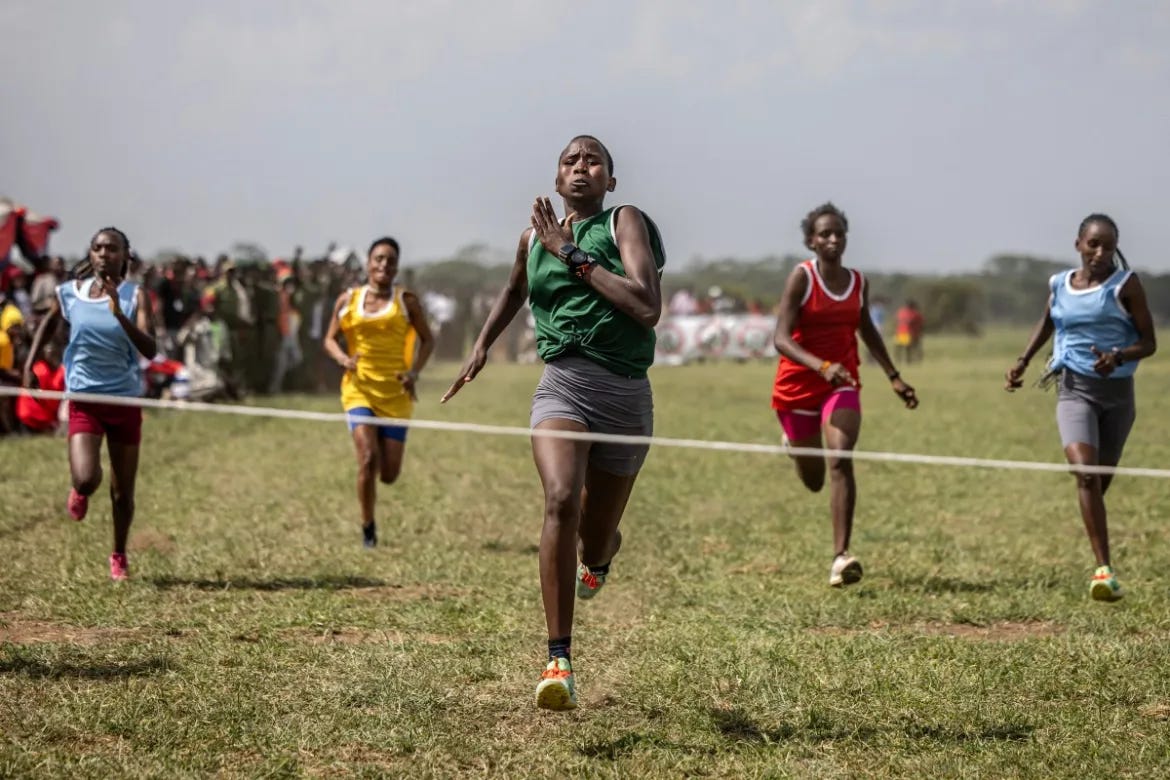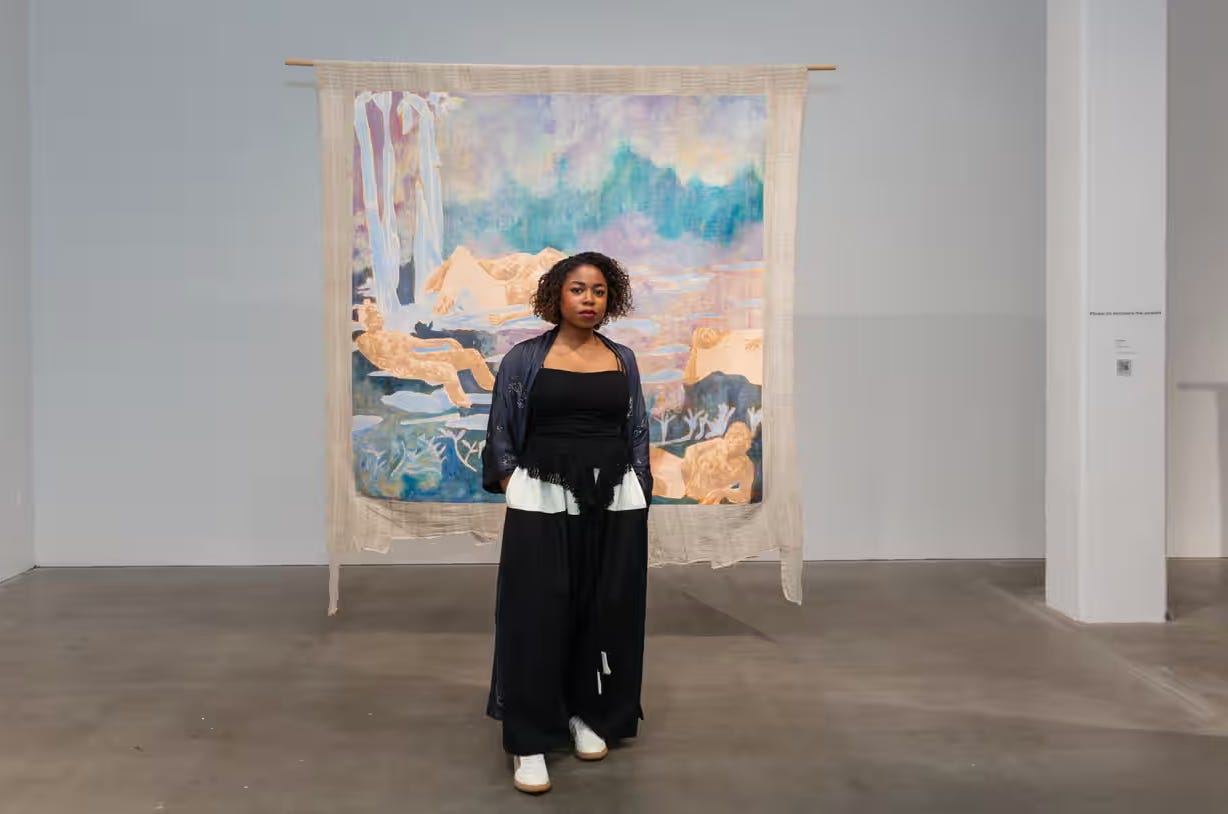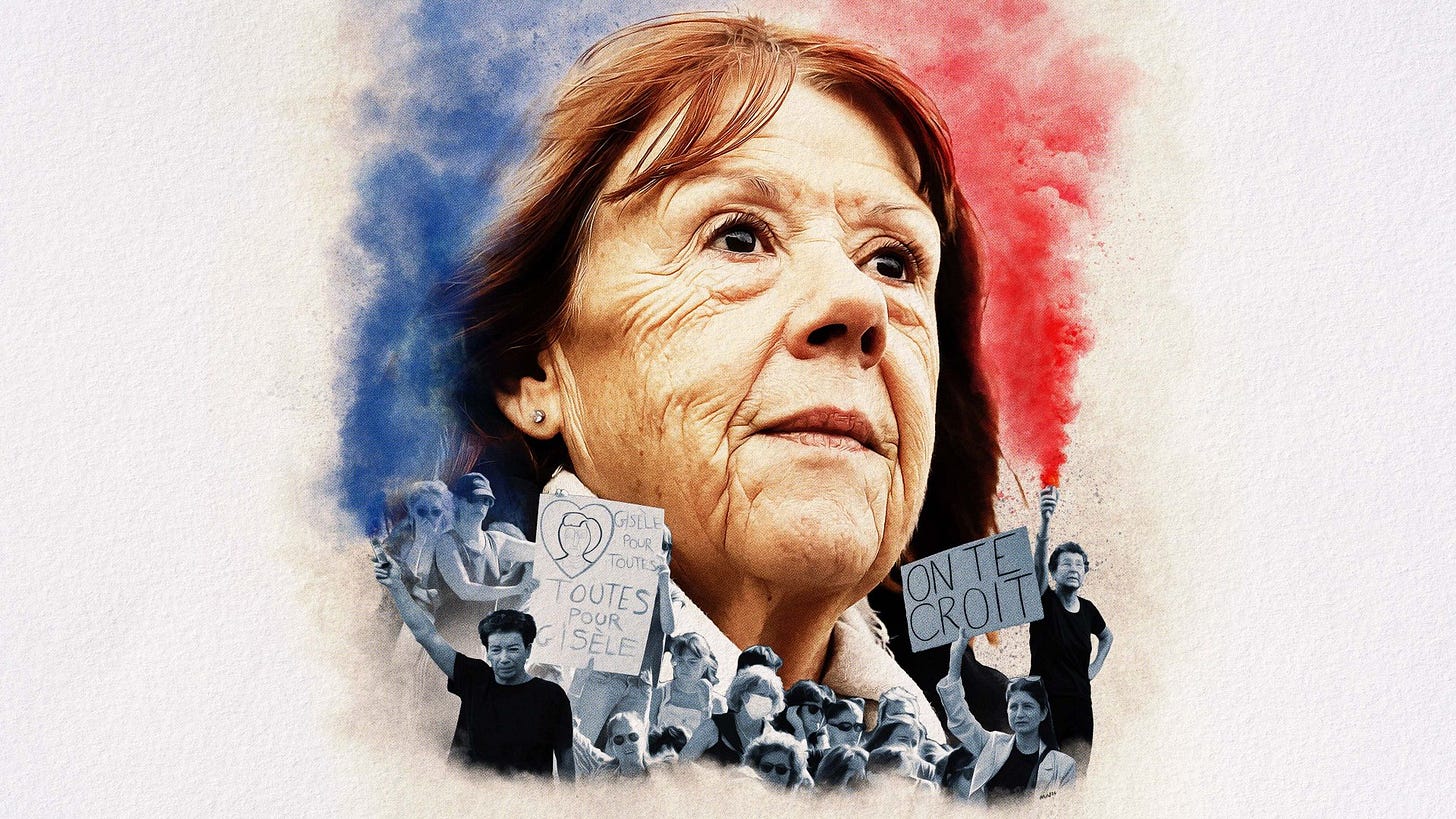Women would leave their jobs to avoid paying for child care.
And the Museum of West African Art (Mowaa) has opened in Nigeria.
“The Intersection” is your Monday, Wednesday, and Friday briefing on global affairs, business, culture, and design—exploring the world through the lens of sustainable development and women-centered perspectives.
Good morning! It’s Monday, and there is a lot to get into today, from global news to cities’ urban mobility rankings, reimagining the future of the American textile industry, and the opening of the Museum of West African Art in Nigeria.
South Korea’s parliament impeached President Yoon Suk Yeol for his attempt to impose martial law on the democracy. His Dec. 3 martial law decree put the country under military rule for the first time in 45 years but only lasted six hours after it drew public outrage. Now, the Constitutional Court has six months to decide whether to reinstate or formally remove him.
Israel has conducted about 800 air raids across Syria since the ouster of Syrian President Bashar al-Assad last week.
After last week’s no-confidence vote, France has a new Prime Minister, François Bayrou, who calls himself a “man of the countryside.” He is the fourth person in this position THIS YEAR as the country struggles with a growing political crisis.
German chancellor Olaf Scholz is expected to lose a no-confidence motion today, taking the first formal step towards securing an early national election following his government's collapse.
Seventeen years after Romania and Bulgaria joined the European Union, they are now members of its border-free Schengen travel zone (starting Jan 1st, 2025).
Texas Attorney General Ken Paxton sued a New York doctor for prescribing abortion medication to a Dallas-area woman.
A drought in Brazil has caused the price of coffee on the futures market to reach a 47-year high.
Mystery drones are flying over the East Coast of the United States.
McKinsey & Company to pay $650 million for their role in the opioid crisis.
Forget Time’s Person of the Year, The New European's Person of the Year is Gisèle Pelicot (a French woman who has gained worldwide prominence in connection with the trial of her husband, who drugged her and allowed at least 50 men to rape her while she was unconscious). The publication states, “Our 2024 Person of the Year has changed the rules, reversed the language, and given women permission to reject shame.” She is a hero.
San Francisco is the city best prepared for the future of urban mobility. This result in the 2024 Urban Mobility Readiness Index surprised me because, generally, U.S. cities are not featured prominently in these types of rankings - we love (and need) our personal cars. While the other cities in the top five (Paris, Singapore, Munich, and Amsterdam) have more robust public transportation systems, San Francisco’s adoption of electric vehicles and other high-tech innovations, such as robotaxis, meant it took the top spot. The report has plenty of interesting information about what seventy cities around the world are doing to improve and invest in their mobility infrastructure, as well as city profiles with recommendations for each metropolis (Chicago is ranked #24 and needs to work on its public transit safety). For example, Lagos is working on establishing a transport police force to safeguard public transport riders, facilities, and infrastructure; the Biden administration announced $343 million to upgrade transit stations with elevators so that disabled commuters can more easily use subway and rail systems, and Milan plans to build cycling infrastructure that will connect 40 schools to give children a safer route.
Research indicates women's empowerment and participation in decision-making processes are correlated with enhanced environmental stewardship.
Reuters covered flooding in more than 45 countries this year. Their end-of-year photo report captures “the chaos and quiet moments, the heroic rescues, the personal tragedies and the surreal landscapes of a world underwater.”

At Kenya’s Maasai Olympics, women ran in the annual event traditionally dominated by men.
Reimagining the future of the American textile industry. Recently, I was speaking with a designer based in Colorado about the difficulties of finding both American-produced material and American sewers. This is a topic that I want to dive into more in the future, as it is an issue that comes up time and time again when speaking with those who want to produce goods domestically. The Carolina Textile District (CTD), an industry cooperative located in Western North Carolina—the historical center of textile manufacturing in the U.S. - is working to change that by connecting makers, designers, and entrepreneurs with patternmakers, printers, material sources, cut & sew facilities, and other members of the manufacturing community who are required for a domestic supply chain. Currently, CTD has 25 mills representing 2,500 workers and is partnering with Material Return to pioneer the U.S. circular economy by transforming textile waste into new raw material streams.
An Indigenous-owned department store pop-up in Toronto. “Aaniin,” meaning hello in Ojibwe, is a pop-up store and in-house streetwear brand featuring more than 40 Canadian-made, Indigenous-owned brands from across the country. Founded by Chelsee Pettit, an Anishinaabe entrepreneur from Aamjiwnaag First Nation, the pop-up is all about celebrating Indigenous creativity and showcasing Indigenous excellence.
Knit With Purpose is another First Nations brand that recently appeared on my radar. They create beautiful one-of-a-kind knitted Cowichan sweaters that are fair trade and authentic. Cowichan sweaters have been passed down through Indigenous generations, and all of their knitters are Indigenous artisans who are dedicated to preserving their cultural heritage through their craft.

The Museum of West African Art (Mowaa), located in Benin City, Nigeria, has had the “hard hat opening” of its institute building, a research, conservation, and collections centre equipped with climate-controlled storage rooms, cutting-edge labs, and exhibition spaces. The museum’s vision is “to create a self-sustaining ecosystem in West Africa for heritage, craftsmanship, and contemporary arts” and to be a place where Western museums can return artefacts that were looted during the colonial era, such as the more than 900 Benin bronzes in the collection of the British Museum.
“It used to be argued that Africa has no space and capacity to look after its heritage. If there were those who did not believe in the vision or that Africans can do it, the opening of the institute demonstrates that Mowaa is now a reality, and that contemporary Africans, like their ancestors who made the famous Benin bronzes, are capable of looking after their heritage using the highest standards found anywhere in the world.”
- Shadreck Chirikure, professor of archaeological science at the University of Oxford, and adviser to the new museum via The Guardian.
Robin Wall Kimmerer was interviewed in the NYTimes about books (she recently released The Serviceberry after her immensely successful Braiding Sweetgrass), and she unsurprisingly has fantastic taste in books.
What books are on your night stand?
The stack is tall and threatening to topple. Right now it has Playground by Richard Powers’s; A Council of Dolls by Mona Susan Power; The Lost Journals of Sacajewea by Debra Magpie Earling; and The Nutmeg’s Curse: Parables for a Planet in Crisis by Amitav Ghosh.
What books might we be surprised to find on your shelves?
Perhaps Rest is Resistance: A Manifesto by Tricia Hersey. It is an important idea and a serious challenge for me, at which I consistently fail. (Jennifer: I wrote about this book last week!)
What kind of reader were you as a child?
My family went to the library in our rural town faithfully every two weeks. I would come home with the maximum allowable number, checked out with my tattered library card. I read everything from Nancy Drew to Cherry Ames and the old-time naturalist John Burroughs. I think I read every “Childhood of Famous Americans” volume, especially the ones profiling Indigenous leaders — because otherwise we were invisible in the library.
Tell us about a nature writer who deserves to be better known.
The poet-ornithologist J. Drew Lanham is a treasure. His books, The Home Place: Memoirs of a Colored Man’s Love Affair With Nature and Sparrow Envy: Field Guide to Birds and Lesser Beasts reflect a sensibility to the natural world that is simultaneously scientific and deeply emotional.
What’s the last great book you read?
It’s hard to choose one, but Barbara Kingsolver’s Demon Copperhead rises to the top. (Jennifer: A must-read)
Read your way through Chicago with Rebecca Makkai. Finally, one of my favourite literary series has come to Chicago. Calm Sea and Prosperous Voyage: The Selected Stories of Bette Howland has now been added to my TBR.
Melinda French Gates has committed $150 million to support women in the workplace as part of her broader $1 billion effort to drive change for women and girls. Research from her firm, Pivotal Ventures, reveals that the main challenge facing working women today is caregiving, particularly child care. Nearly a quarter of the 4,500 Americans surveyed, which included nonbinary individuals and transgender women, said they would leave their jobs to avoid paying for child care.
"The secret of freedom lies in educating people, whereas the secret of tyranny is in keeping them ignorant." - Maximilien de Robespierre
Hope you have a great start to the week. If you have any tips or topics you would like to share, please feel free to leave a comment!
Jennifer
xxx










